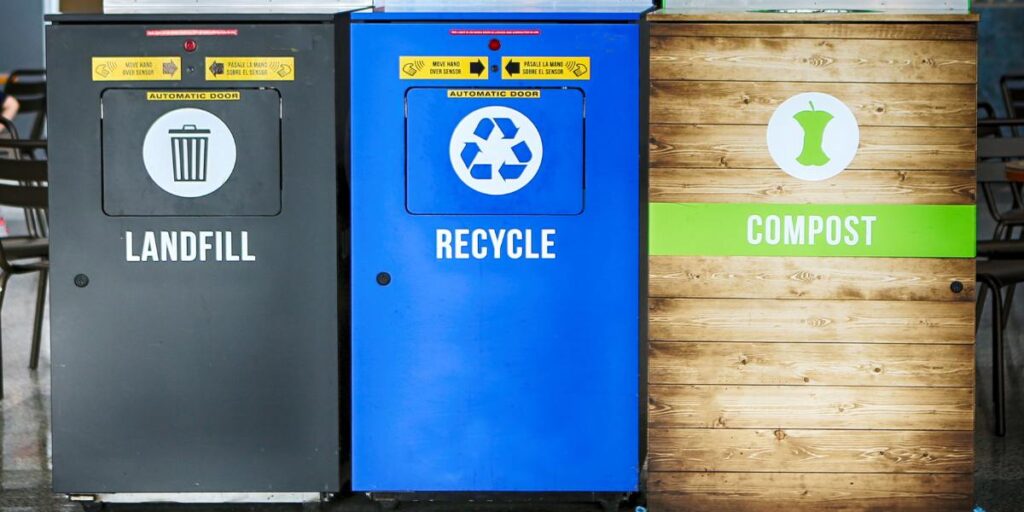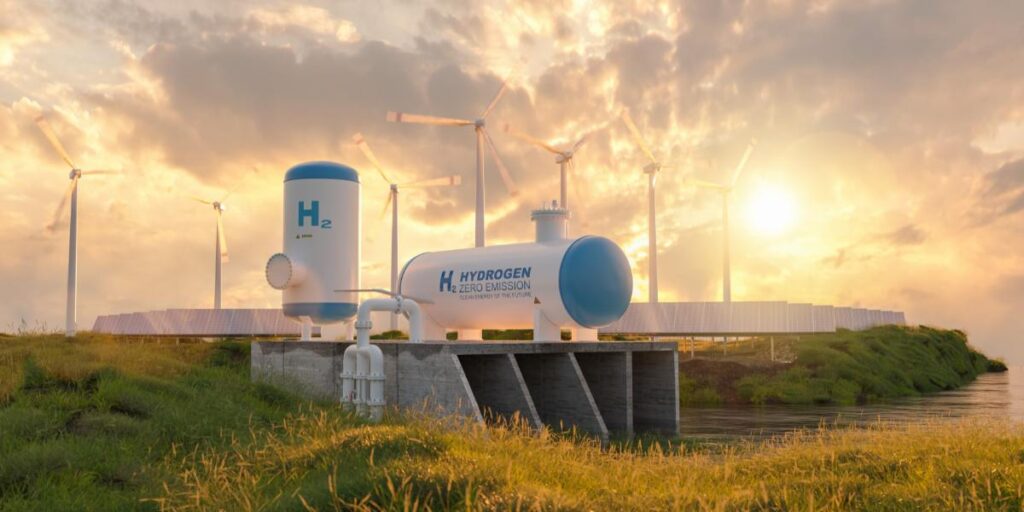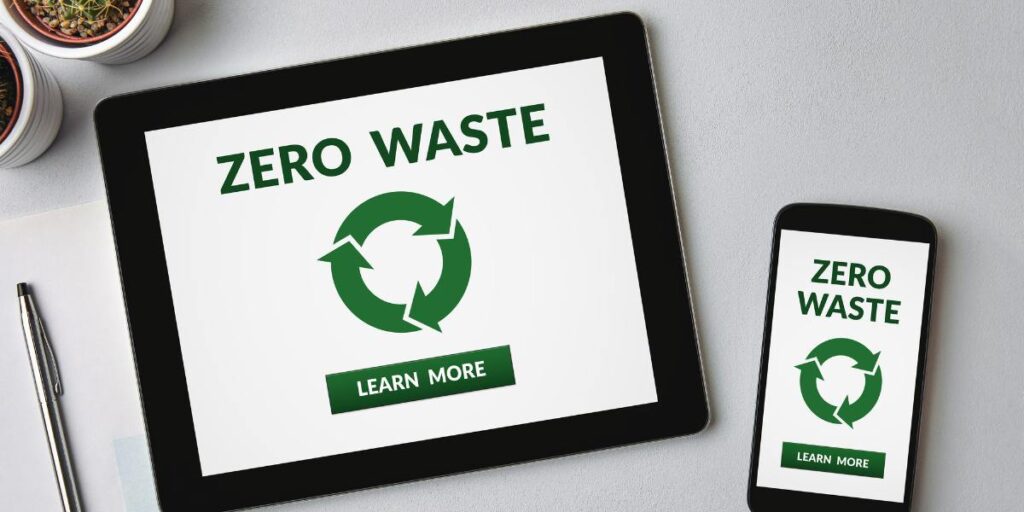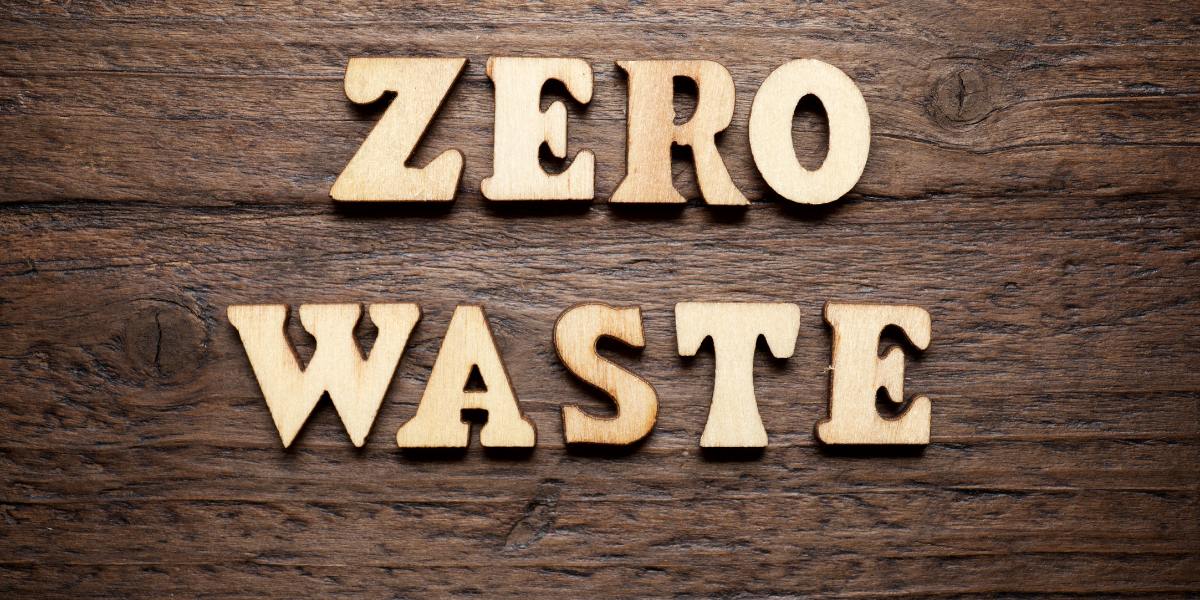Achieving zero waste management goes beyond simply reducing the waste sent to landfills. It requires a complete transformation in the way we produce, consume, and dispose of materials.
A zero-waste strategy aims to eliminate waste through sustainable practices that recover resources and promote responsible consumption.
This guide on how to achieve zero waste management provides practical and effective strategies for implementing zero waste practices in homes, businesses, and communities.
Adopt the “5 Rs” of Zero Waste
The foundation of zero waste management revolves around the “5 Rs”: Refuse, Reduce, Reuse, Recycle, and Rot.
Each principle addresses a different aspect of managing waste sustainably. Refuse entails rejecting unnecessary items like single-use plastics and excess packaging, while Reduce focuses on lowering consumption by buying fewer but higher-quality, durable products.
Reuse promotes extending the lifecycle of items by repurposing them or giving them a second life through donations or repairs. Recycling should be the last step, involving proper sorting of recyclable materials such as paper, glass, and metals to prevent them from ending up in landfills.
Finally, Rot involves composting organic materials like food scraps and yard waste to prevent methane emissions and contribute to healthy soil.

Implement Circular Economy Practices
A successful zero-waste system is built on circular economy principles, where resources are continuously cycled back into production. Businesses can benefit from commercial trash collection services to ensure proper disposal and recycling.
The linear “make, use, dispose” model needs to be replaced by one that prioritizes products designed for longevity, repair, and recyclability. Businesses should focus on modular designs that allow easy disassembly for repairs or recycling, reducing the need for entirely new products.
For consumers, supporting brands that practice sustainable manufacturing and offer long-lasting products is key.
Additionally, embracing the sharing economy, such as renting or borrowing items, helps reduce waste generation by minimizing the demand for new products.
Invest in Sustainable Packaging
Packaging waste is a major contributor to environmental pollution, particularly with the rise of single-use plastics.
Transitioning to sustainable packaging options like biodegradable, compostable, or recyclable materials can significantly reduce waste. Companies can adopt minimalist packaging approaches that use fewer materials or explore refillable and returnable packaging systems.
This not only reduces environmental impact but also helps businesses meet consumer demand for more eco-friendly products.
For larger clean-up projects, consider our construction debris removal services.

Practice Responsible Consumption
Responsible consumption is at the heart of zero waste management. Before purchasing anything, consider if the item is truly necessary or if you can use something you already have.
Buying in bulk minimizes packaging waste, while opting for sustainable brands ensures you’re supporting companies committed to eco-friendly practices. If you’re decluttering, our furniture removal service can help you responsibly dispose of items you no longer need.
Second-hand shopping is another way to reduce waste, as it extends the life of products like clothes, furniture, and electronics that would otherwise end up in landfills.
Establish Waste-Free Workplaces and Homes
Creating a waste-free environment in workplaces and homes requires thoughtful systems and habits.
At work, digital solutions can reduce paper waste, while providing reusable kitchenware minimizes disposable products. Businesses can implement centralized waste stations to sort recyclables and compostable materials.
At home, setting up composting systems and using reusable items like cloth napkins and refillable cleaning products are small changes that can have a big impact.
Energy-efficient devices and water-saving technologies also reduce waste from resource consumption.
Conduct Waste Audits
Regular waste audits are essential to identifying areas where waste reduction can be improved.
This involves sorting through all generated waste and analyzing what materials are being discarded most frequently. Businesses and households alike can use this data to set measurable waste reduction goals.
Tracking key metrics such as the volume of waste produced or the amount of recyclables diverted from landfills helps gauge progress and pinpoint areas for further improvement.

Support Local Zero-Waste Initiatives
Local governments and community organizations often play a significant role in promoting zero-waste practices.
Supporting or participating in programs like community composting or repair cafés can help reduce waste on a larger scale. Swap events for clothes or tools, and advocating for policies that encourage waste reduction, such as plastic bans or incentives for sustainable packaging, are excellent ways to engage with your local community.
Engage in Composting Organic Waste
Composting is a vital component of zero waste management, as it diverts a significant portion of waste from landfills and creates nutrient-rich soil.
For households, home composting systems using kitchen scraps and yard trimmings can reduce organic waste.
Municipal composting programs, where curbside collection of organic material is available, make composting accessible to larger
communities, ensuring efficient waste processing and environmental benefits.

Choose Renewable Energy Sources
Energy consumption and waste are closely connected, making the use of renewable energy sources essential for zero waste management. Switching to solar or wind power for homes and businesses can significantly lessen environmental harm.
Even simple actions, like using energy-efficient appliances or switching to LED lighting, contribute to reducing energy waste.
Opting for green energy plans provided by utility companies is another way to support renewable energy without the need to install your own system.

Educate and Advocate for Change
To promote the widespread adoption of zero-waste practices, education and advocacy are key. Hosting workshops, seminars, or creating online content can raise awareness about the benefits of zero waste and offer practical tips for reducing waste in daily life.
Advocating for policies that support zero-waste efforts, like extended producer responsibility (EPR) laws, can lead to systemic change by holding manufacturers accountable for the disposal of their products at the end of their life cycle.

Track Your Progress
Tracking your progress is essential to stay motivated and fine-tune your zero-waste approach. Set clear, measurable goals, like cutting down on single-use plastics or achieving zero waste in specific areas, and review them frequently.
Utilizing apps that monitor waste reduction or joining community challenges can keep you focused and allow you to celebrate every step you take toward a waste-free lifestyle.
FAQs on Achieving Zero Waste Management
What is zero waste management?
Zero waste management is an approach that seeks to minimize or eliminate waste generation by rethinking how products are designed, consumed, and disposed of.
It involves adopting sustainable practices such as reducing, reusing, recycling, and composting to keep materials in circulation and prevent them from ending up in landfills or incinerators.
Why is zero waste important?
Zero waste is important because it reduces the amount of waste that ends up in landfills and incinerators, which helps conserve natural resources, reduce pollution, lower greenhouse gas emissions, and mitigate the environmental impact of waste disposal.
It also encourages a more sustainable, circular economy where resources are reused and recycled rather than discarded.
What are the “5 Rs” of zero waste?
The “5 Rs” of zero waste are Refuse, Reduce, Reuse, Recycle, and Rot. These principles guide individuals and businesses toward minimizing waste generation.
Refuse unnecessary items, Reduce consumption, Reuse what you can, Recycle properly, and Rot (compost) organic waste to divert it from landfills.
How can businesses implement zero waste strategies?
Businesses can implement zero waste strategies by reducing their reliance on single-use packaging, adopting circular economy principles, offering products designed for repair and recycling, and setting up comprehensive waste management systems for recycling and composting.
Conducting waste audits, using eco-friendly packaging, and investing in renewable energy sources are also key steps.
What is a circular economy?
A circular economy is a model of production and consumption that focuses on keeping materials and products in circulation for as long as possible.
Instead of following the traditional “make, use, dispose” approach, a circular economy promotes repairing, reusing, refurbishing, and recycling to extend the life of products and reduce waste.
What can individuals do to achieve zero waste at home?
Individuals can achieve zero waste at home by following the 5 Rs: Refuse unnecessary items like single-use plastics, Reduce consumption by buying only what you need, Reuse by repurposing items, Recycle properly according to local guidelines, and Rot by composting organic waste.
Switching to reusable products (like water bottles, shopping bags, and containers), buying in bulk, and practicing responsible consumption are also key actions.
How can I start composting at home?
You can start composting at home by setting up a composting bin or pile in your yard or balcony.
Collect kitchen scraps such as fruit and vegetable peels, coffee grounds, eggshells, and yard waste like leaves and grass clippings.
Avoid adding meat, dairy, or oily foods. Turn the pile regularly to aerate it and speed up decomposition, and within a few months, you’ll have rich compost to use in your garden or plants.
What is a waste audit, and why is it important?
A waste audit is the process of sorting and analyzing the waste generated by a household, business, or community to identify what materials are being discarded and where improvements can be made. It’s an essential tool for understanding waste patterns, measuring progress, and setting goals for reducing waste.
Waste audits help pinpoint opportunities to recycle more, compost organic materials, or reduce reliance on single-use items.
Conclusion
Zero waste management is not a one-time effort but a long-term commitment that brings environmental, economic, and social benefits.
By embracing the “5 Rs,” implementing circular economy practices, and supporting local waste reduction initiatives, both individuals and businesses can contribute to a more sustainable future.
Achieving zero waste is about more than just minimizing what we throw away; it’s about fundamentally transforming the way we produce, consume, and manage resources to create a healthier, more sustainable planet.
Ready for hassle-free dumpster rental services? Click here and get your dumpster delivered anytime you need!
